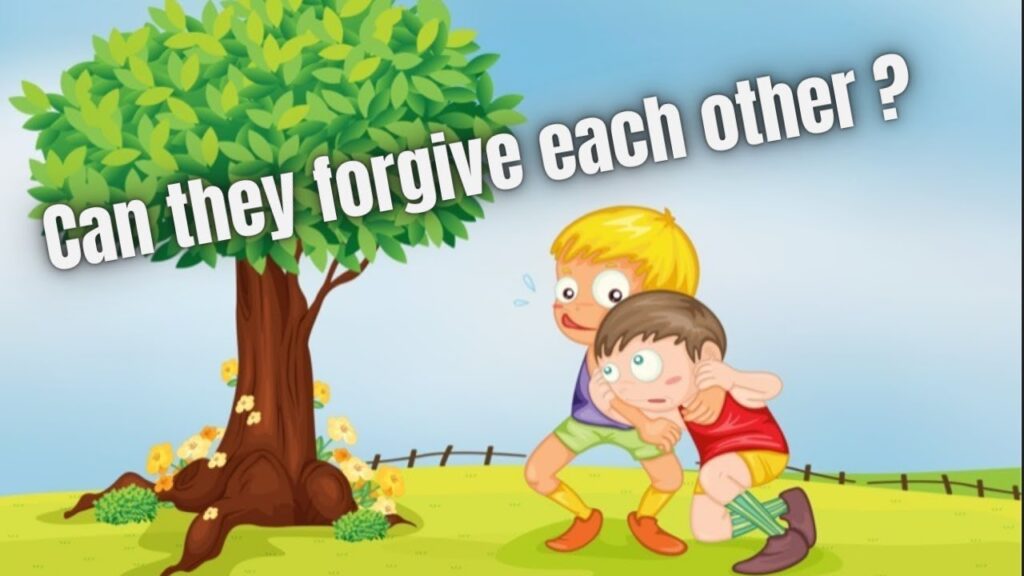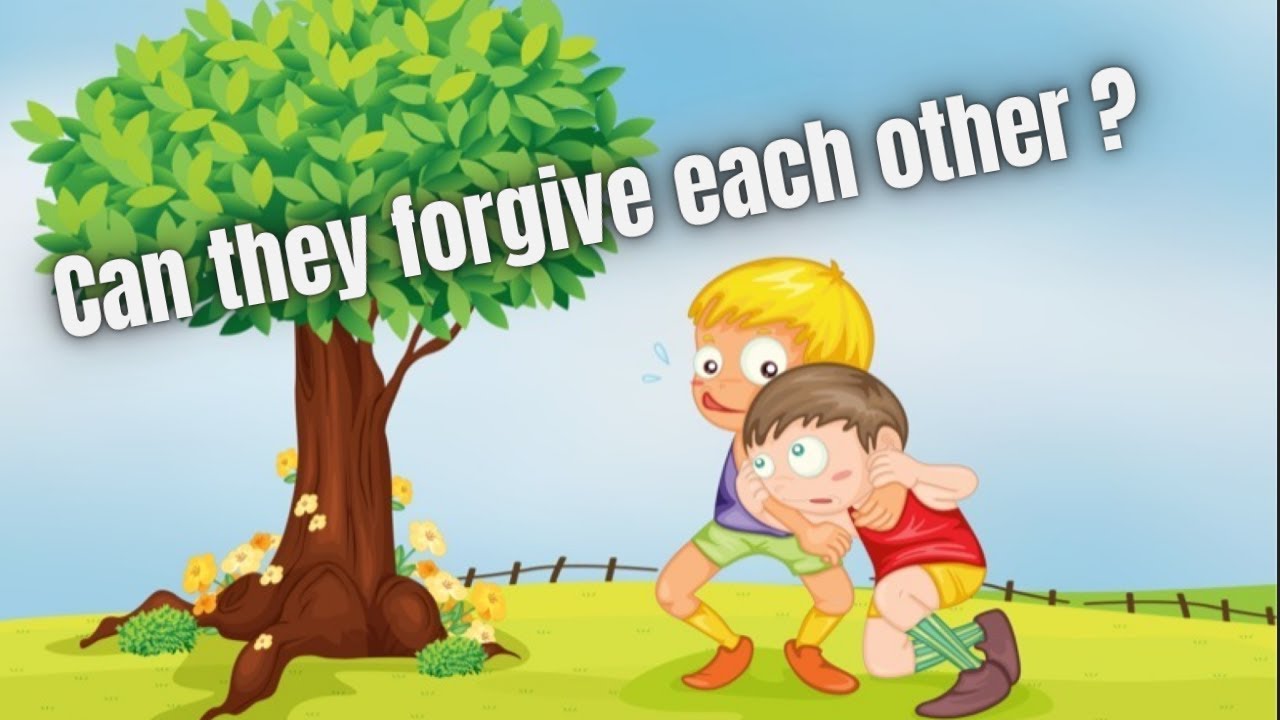
The Power of a Forgiveness Story: Finding Healing and Reconciliation
Forgiveness, often described as a virtue, is a complex process with profound implications for both the forgiver and the forgiven. A compelling forgiveness story can illustrate this complexity, showcasing the transformative power of letting go of resentment and embracing reconciliation. This article delves into the significance of forgiveness stories, exploring how they offer lessons in empathy, resilience, and the potential for healing even in the face of deep hurt. We’ll examine real-life examples and discuss the psychological and social benefits of choosing forgiveness.
Understanding Forgiveness: More Than Just Forgetting
Before exploring specific forgiveness stories, it’s crucial to define what forgiveness truly entails. Forgiveness is not about condoning harmful behavior or forgetting the offense. Instead, it involves a conscious decision to release feelings of anger, resentment, and vengeance toward the person who has wronged you. It’s a process of emotional and cognitive restructuring, allowing you to move forward without being consumed by bitterness. This process can be challenging and often requires time, self-reflection, and sometimes, professional guidance.
True forgiveness often involves empathy – the ability to understand and share the feelings of another. While not excusing the offender’s actions, empathy can help you see the situation from their perspective, potentially leading to a deeper understanding of their motivations and circumstances. This understanding can be a crucial step towards letting go of anger and resentment.
The Transformative Impact of Forgiveness Stories
Forgiveness stories offer powerful examples of how individuals have navigated the difficult path of forgiveness, often against seemingly insurmountable odds. These narratives provide hope and inspiration, demonstrating that even in the aftermath of profound betrayal or trauma, healing and reconciliation are possible. They highlight the internal strength required to choose forgiveness and the positive ripple effects it can have on individuals, families, and communities.
A Story of Reconciliation After Tragedy
One striking forgiveness story involves the family of a victim of a violent crime. Instead of harboring hatred and seeking retribution, the family chose to reach out to the perpetrator’s family, offering support and understanding. This act of extraordinary compassion not only provided solace to both families but also sparked a dialogue about the root causes of violence and the importance of restorative justice. The story became a powerful testament to the healing power of forgiveness and its potential to break cycles of violence and hatred. This [See also: Restorative Justice Practices] shows how forgiveness can extend beyond individual healing and contribute to broader social change.
The Power of Self-Forgiveness
Forgiveness stories often focus on forgiving others, but the ability to forgive oneself is equally important. Self-forgiveness involves acknowledging one’s mistakes, taking responsibility for one’s actions, and letting go of self-blame and guilt. This process can be particularly challenging, as individuals often hold themselves to higher standards than they do others. However, self-forgiveness is essential for personal growth and well-being. Without it, individuals can become trapped in cycles of self-punishment and regret, hindering their ability to move forward and live fulfilling lives.
Consider the forgiveness story of a doctor who made a critical error that resulted in a patient’s death. The doctor was consumed by guilt and self-doubt, questioning their abilities and considering leaving the medical profession. However, through therapy and self-reflection, the doctor came to terms with the mistake, acknowledged the pain it caused, and committed to learning from the experience. This act of self-forgiveness allowed the doctor to continue practicing medicine with renewed dedication and compassion, ultimately benefiting countless other patients. This example illustrates the importance of self-compassion and the transformative power of forgiving oneself.
The Psychological and Social Benefits of Forgiveness
The benefits of forgiveness extend far beyond emotional well-being. Research has shown that forgiveness can have a positive impact on physical health, reducing stress, lowering blood pressure, and boosting the immune system. It can also improve relationships, fostering greater trust, intimacy, and communication. Furthermore, forgiveness can contribute to a more peaceful and harmonious society, promoting understanding, empathy, and reconciliation between individuals and groups.
Conversely, holding onto resentment and anger can have detrimental effects on both physical and mental health. Chronic anger can lead to increased risk of heart disease, stroke, and other health problems. It can also contribute to depression, anxiety, and other mental health disorders. Moreover, unforgiveness can damage relationships, creating distance, mistrust, and conflict. Therefore, choosing forgiveness is not only a compassionate act but also a wise decision for one’s own well-being.
The Role of Empathy in Forgiveness
As mentioned earlier, empathy plays a crucial role in the process of forgiveness. By attempting to understand the offender’s perspective, you can gain a deeper appreciation for the factors that may have contributed to their actions. This doesn’t excuse their behavior, but it can help you to let go of anger and resentment. Empathy allows you to see the offender as a human being, with their own flaws, struggles, and vulnerabilities. This can be a powerful step towards forgiveness and reconciliation. Many forgiveness stories highlight the importance of developing empathy for the other person.
The Importance of Boundaries
While forgiveness is a positive and beneficial process, it’s important to emphasize the importance of setting healthy boundaries. Forgiveness does not mean allowing yourself to be repeatedly victimized or abused. It’s essential to protect yourself from further harm and to establish clear boundaries with the offender. This may involve limiting contact, seeking professional help, or taking legal action. Forgiveness is about releasing yourself from the burden of anger and resentment, not about condoning harmful behavior or putting yourself at risk. Some forgiveness stories involve people who chose to forgive but also chose to distance themselves from the offender.
Practical Steps Towards Forgiveness
Forgiveness is not always easy, but it is a skill that can be developed over time. Here are some practical steps you can take to cultivate forgiveness in your own life:
- Acknowledge your pain: Allow yourself to feel the pain and anger associated with the offense. Don’t try to suppress or deny your emotions.
- Reflect on the situation: Consider the events that led to the offense and the impact it has had on your life.
- Develop empathy: Try to understand the offender’s perspective and motivations.
- Make a conscious decision to forgive: Choose to release your anger and resentment.
- Let go of expectations: Don’t expect the offender to apologize or change their behavior.
- Focus on the present: Don’t dwell on the past. Focus on moving forward and creating a better future.
- Practice self-compassion: Be kind and understanding to yourself. Forgiving yourself is just as important as forgiving others.
- Seek support: Talk to a trusted friend, family member, or therapist.
The Lasting Legacy of Forgiveness
Forgiveness stories serve as powerful reminders of the human capacity for resilience, compassion, and healing. They demonstrate that even in the face of profound hurt and betrayal, it is possible to choose forgiveness and create a more peaceful and fulfilling life. By embracing forgiveness, we not only free ourselves from the burden of anger and resentment but also contribute to a more just and compassionate world. The legacy of forgiveness stories lies in their ability to inspire hope, promote understanding, and empower individuals to overcome adversity and build stronger, more meaningful relationships. Understanding the nuances of forgiveness, as depicted in these narratives, is key to unlocking its transformative power. Forgiveness story after forgiveness story shows us the way.
The importance of a forgiveness story cannot be overstated. It allows us to see the possibility of healing and reconciliation in our own lives, even when faced with difficult circumstances. A good forgiveness story inspires us to be better.
Ultimately, the choice to forgive is a personal one. There is no right or wrong answer, and it is important to respect your own needs and boundaries. However, by understanding the benefits of forgiveness and learning from the experiences of others, you can make an informed decision about whether or not to embark on this transformative journey. And remember, many forgiveness stories emphasize that forgiveness is a process, not an event.
The impact of a forgiveness story resonates long after it’s been told. Learning from a forgiveness story can be a life-changing event. It’s often said that a forgiveness story can inspire others to forgive. The best forgiveness stories teach us about empathy and compassion. Each forgiveness story offers a unique perspective on healing. The themes in each forgiveness story can be powerful and moving. A forgiveness story can change your perspective.

